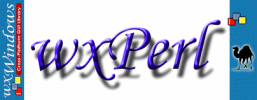

In wxPerl all classes are named Wx::Something, so wxFrame is really Wx::Frame. Static methods are called Wx::ClassName::Method(). Global function named wxFunction() are accessible as Wx::Function().
In wxWindows some methods (like FindWindow) return a pointer to a base class, and the programmer is obliged to explicitly cast the object to the right type. wxPerl does this for you, so you do not need to worry for that.
Where is applicable, wxPerl uses overloaded method names just like wxWindows, when this is not feasible, the difference is documented in the following pages (and will be documented in wxWindows manual, in the future).
Some wxWindows functions modify their parameters; though in Perl this is possible, wxPerl avoids this practice, and such methods are always modified to take less parameters and return a Perl array.
In Perl memory management is a matter for the perl interpreter; however, since we are interacting with an external C++ library, there are some problems.
In wxPerl there are three kinds of objects
Wx::*Event, Wx::App, Wx::Bitmap, Wx::Brush, Wx::*DC, Wx::Colour, Wx::Cursor, Wx::EvtHandler (user objects derived directly from Wx::EvtHandler), Wx::Font, Wx::Icon, Wx::Image, Wx::ImageList, Wx::Locale, Wx::Pen, Wx::Point, Wx::Rect, Wx::Region, Wx::Size, Wx::ToolTip